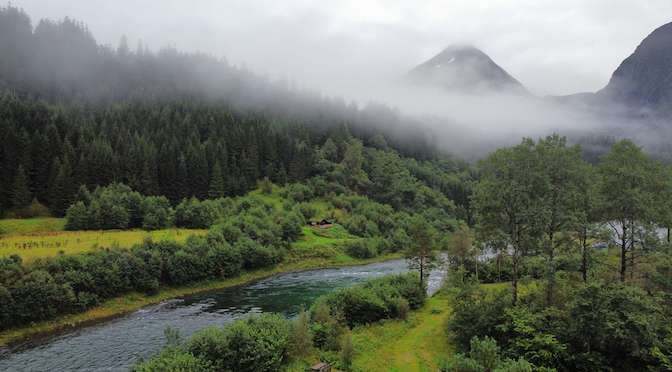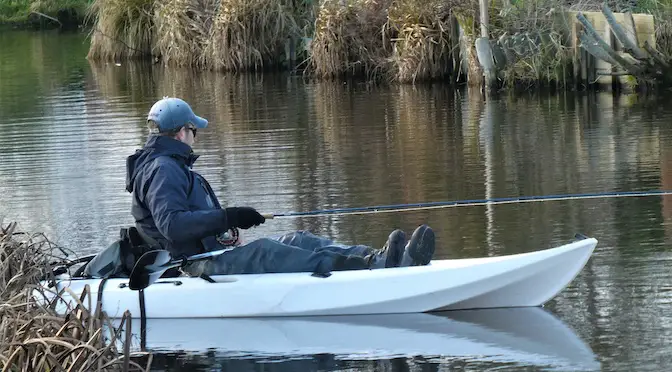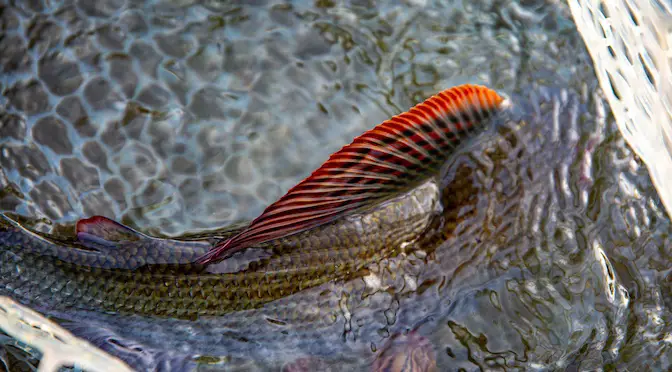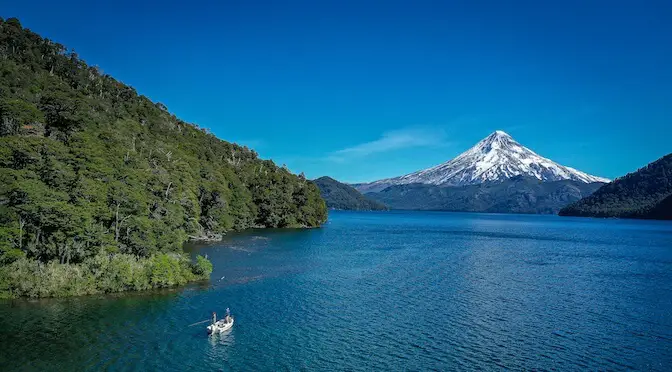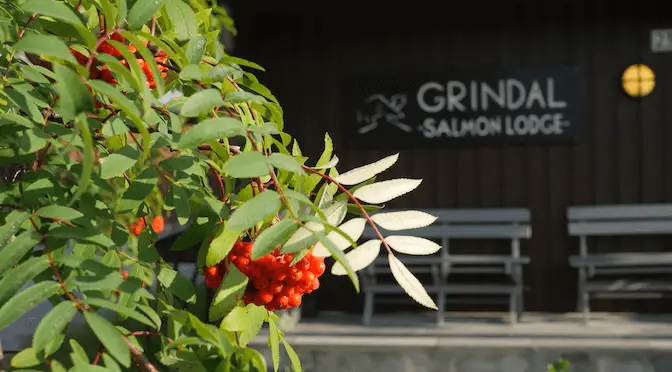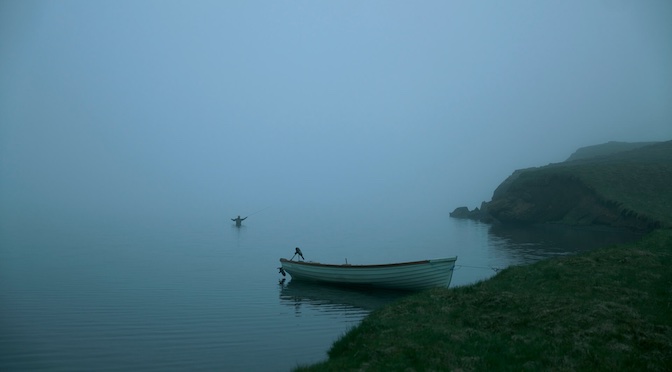Last updated on January 9th, 2024.
- Big Trout at Night – Vampire Hours - August 8, 2019
- Giant Browns of the Bay of Plenty - March 21, 2018
- A Workout for Wild Trout in Urewera - December 3, 2017
The most inhospitable, terrifying, thought-provoking, exhilarating and rewarding course one can imagine – looking for wild trout in Urewera Gorges. The remotest, gnarliest, most dangerous gorge we’ve ever suspected, and here we were with 60lbs packs on our backs, fly rods in steel tubes, giving it heaps in our quest to get an eye on every inch of water through it.
Why? Well, hell. Imagine the wild trout that might be in there.
The expedition team
Nick Foster: Iron Man Extraordinaire. Well, he used to be before he landed an office job in Auckland and now spends more time playing with tackle shops on the internet than actually using the stuff. Notorious for always being the first one to fall in the river (it’s the seven foot long tree trunks he was blessed with for legs). Will always be the one that starts a minor avalanche as you precariously slide across a sheer gorge face with an 80 foot drop below you. Has no feeling for pain from the neck down and isn’t scared of anything much at all really – a result from years playing as Lock for the Thames Valley Rugby Club.
Rod Skill Factor: 8/10. Actually make that a 4 – he dropped two browns in the air last weekend – fit wild trout that jumped all around the pool before spitting him. Hopeless. You know Nick, that if you didn’t have so many rods that you’d probably end up getting quite good with one of them!
Andrew Holland: Iron Man Extraordinaire … yep – the genuine one-piece … still in one piece – even after falling most of the way through the gorge and back. He even trains and completes real live ironman events – silly bugger – never seen a wild trout anywhere near one of those contests … and they don’t even have flash new rods and reels up for grabs for the winners. Still, all that training stood him in good stead should we need him to carry our packs for a wee while.
Rod Skill Factor: 10/10. Just learning apparently – but managed to whip out fish left right and centre on the first day. Actually, make that a 10/100 for catching nothing on the last day (and blazing us all up on the first). The youngest on the expedition, very lucky to avoid general abuse from his seniors – even if he states otherwise!
Miles Rushmer : Smoker Extraordinaire, known to walk long distances as long as there’s a rod in attendance and a deep supply of durries. Guide in the sunny Bay of Plenty – so add rain and he’s bloody useless.
Rod Skill Factor: 2/10 – spends more time watching clients fish to wild trout than anything else, so has forgotten what a rod actually feels like Has a big mouth and loads of advice whether you need it or not – especially when you have a fish on. Not the safest person to have in dire situations, or to have talk Nick Foster through precarious rock climbing procedures.
Departure
So here we were – 1/4 of the way up the first hill – absolutely rooted. Urewera hills are the biggest dogs I know, and this was a cracker. After waltzing at speed along the river flats for the first forty minutes, the sharp incline had us gasping for a smoke. The plan was to get up high, then drop into the riverbed, and then do whatever it took, crawl, jump, swim, to get through to at least the middle section of the gorge’s length, then fly camp for three days. Right about then, our minimalist fly camp – split three ways and sitting on our backs felt like an entire house lot.
And so it continued, 20 staggers straight up, followed by heart palpitations and liberal cursing, and so on, and so on. After which, the first steps into the slippery riverbed were well received, and very shaky.
Low, clear water, after three weeks of hot sun made progress relatively easy, and then we hit the gorge proper. To say I felt like an ant trying to negotiate the twin towers lying in rubble, with a tsunami flowing through it, would be the understatement I was looking for. Huge log jams, deep, fast water, billion tonne chunks of rock and sheer walls had me questioning our mental stability in quick order. And for the next two hours we ever so carefully negotiated our way through, around, over, and under, this most spectacularly humbling course of nature, trying to not look for wild trout. All we wanted to do at this stage was to ditch the shoulder burning packs, pitch camp, and then get into it. We managed to reach a suitable perch for the tent fly some two hours later, with major personal pain and no minor injuries. I can’t remember whether Nick fell in or not, but it’s usually safe to say that he did. Not that it made much difference, we were all either drenched from sweat, or from chin deep wading. Huge relief came with the call to ditch packs and build us a home for the next three days.
The first casts
The pool was a beauty. A huge twelve tonne stem of native timber stuck in its throat and big boulders deep down with patterns of skulls on it, talking in the current. The only place to cast was by shimmying out onto a stand alone boulder with a 65 degree angle slope on it. One thing that struck me in here was that every footstep had to be so damn calculated, every movement had serious consequences, to slip and fall was to meet trouble. Big trouble. As Nick edged slowly out across the current to the big, tilted slab of rock he suddenly became confronted with the first problem – how the heck to get up onto it from four feet deep in water. Using toes, his rod butt like a climbing hammer, knees, fingernails and teeth, he eventually got onto the face of it and promptly started sliding to his death. A patch of dry moss saved the day, and first cast connected him to 6 volts of pure red-plated energy.
Andrew then proceeded to pull some beauties out of the next three or so pools and runs before we stumbled back to camp for a very early night. Rain. A big concern. Today it was drizzling heavily – after three weeks of clear blue skies. Hmmmm, super slippery rocks, big dangerous ones, just add height for real live thrills. This was a familiar scenario, all day every day. The ground was so rugged that it was a challenge just putting one foot in front of the other most of the time – let alone getting up onto the roof of the boulders to cast to wild trout in front of them. Now, with constant rain, and rising water levels, our caution levels were on high alert and the fishing got better and better.
There is something special about catching a six pound rainbow in such majestic surrounds, especially when one has endured such a majestic hike to get there. Something that occurred to me in that remote domain was how spooky the fish were. I guess that with pressure comes familiarity. A trout in a Rotorua stream becomes conditioned to the presence of humans, whereas in the wildest of wild places, a resident wild trout knows every leaf on every tree around its pool, every stick and every patch of skylight above it. Very, very rarely is there anything out of place in its field of vision. Any change in these surrounds will alert these fish, so careful stalking is an absolute must. It most certainly is not a case of dumb backcountry rainbows – the more remote the fishing, the sharper the wild trout seem to be to anything out of the norm.
Gorging – not your average day on the water
Over the duration of our existence in that gorge we covered a fair range, both upstream and downstream of camp however it is upstream that holds many miles more of arduous adventure, hard fighting rainbows, big eels, and scarier predicaments than that. The rising river levels flushed us out a day earlier than anticipated, the rain making the journey out extremely picky. We arrived at the car on our chins, exhausted but exhilarated at getting there alive, and with so much more on board our memory banks.
I could go on about each and every fish, depth of detail on every new pool, scrapes with falls, or the magnificence and power of the environment that puts 50-foot long logs high and dry on top of 100-food high rocks in the middle of the thin strip of sky. Fly fishing – I guess it’s what you make it that is so appealing about the pursuit, a casual stroll up a flat-bottomed shingle spring creek, or the other extreme – gorging. Hardly a walk in the park – more a death defying visual feast with the pleasant aside of casting to nice fat wild trout. If you’re in fairly good health, not scared of heights, don’t smoke and can get time off work, then I suggest finding the meanest gorge you can and take it on with fly rod in tow. If you can’t get the time off work – then quit. It’s soooo not going to happen when you retire.
Contact Miles Rushmer at milesrushmer@xtra.co.nz

